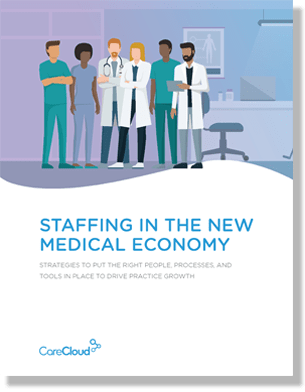Introduction
Digital health is transforming how patients access care and how healthcare systems function. Digital health is the use of digital technologies in the delivery of healthcare services. It covers telemedicine, mHealth, wearable technologies, e-health, Artificial Intelligence, and data mining. These technologies enable healthcare organizations to monitor and treat patients from a distance, collect and analyze data in real-time, and make more precise and timely diagnoses.
Digital health effectively improves patient outcomes by increasing care accessibility for the underprivileged and making it easier for medical personnel to manage their work. In this article, you’ll learn more about this field that has the potential to improve medical outcomes significantly, find a list of jobs typical to it, and explore the role it plays in different professional environments.
Understanding Digital Health: Regulatory and Healthcare Environment
Digital technology has transformed the healthcare business. Healthcare workers must adjust to new technology in this environment, while inventors and entrepreneurs must deal with new FDA rules.
The regulatory framework
The Food and Drug Administration (FDA) in the United States enforces stringent regulations for medical supplies. The FDA has also improved its rules for digital technology in healthcare during the last ten years to facilitate the faster release of software updates and enhancements. Therefore, anyone interested in starting their own business or working in technology should be prepared to navigate these regulatory challenges. For instance, Care Cloud’s telehealth platform integrates with electronic health records (EHR) and complies with FDA regulations for medical software to ensure safety and effectiveness.
HealthCare environment
Today’s healthcare professionals should anticipate being more often exposed to new digital technology than in the past. Although some healthcare providers may be hesitant to use these new resources, others may see them as a chance to enhance patient care and patient services.
The Impact of Digital Health on the Future of Healthcare
The influence of digital health is fast growing in all areas of healthcare. Digital tools radically change how healthcare providers practice. Big data analytics, telemedicine, mobile health, artificial intelligence, and other fields are all included in this wave of technological integration, which also brings many significant trends and possibilities.
The Rise of AI and Machine Learning in Diagnostics
Artificial intelligence (AI) and machine learning are transforming diagnostic processes by increasing diagnosis speed and accuracy. Radiology imaging systems, for example, are AI-powered instruments trained to identify anomalies in medical pictures more accurately than human equivalents. Because prompt action is ensured, this lowers diagnostic mistakes, expedites the procedure, and improves results. Since AI can handle large amounts of data, it can also examine clinical data such as test results, patient histories, and other data to find patterns humans would miss.
AI has proven to recognize early-stage malignancies in oncology, which are sometimes difficult to detect. These technologies can notify doctors of irregularities that require more research through pattern recognition. This development strengthens preventative care and increases diagnostic accuracy.
Personalized Medicine and Genomics
Digital health has brought massive advancements in personalized medicines, such as genomics. With the help of advanced machine learning algorithms and large amounts of genomic data, clinicians can now select the best course of action for the patient’s genetic predispositions. This is why therapies can be more specific with the kind of medications they recommend and administer, being more compatible with the patient’s biology.
This precision in individualized drug therapies minimizes the side effects of the medications administered on the one hand while maximizing the impact. For instance, in oncology, genetic profiling helps identify molecular alterations that inform targeted therapy and thus affects the quality of outcomes. This change of focus on the patients improves treatment and opens doors to preventive health care.
As more development is made in digital health technologies, the future of precision medicine also holds a lot of potential to make even better, more effective, and patient-centered healthcare approaches that will change how diseases are diagnosed and treated.
Conclusion
The delivery, accessibility, and management of healthcare are all being improved by digital health, which is completely changing the sector. These technologies lower obstacles, enhance patient outcomes, and streamline healthcare operations. Examples include telemedicine, AI-driven diagnostics, tailored medication, and mobile health applications. Digital tools provide enormous prospects for entrepreneurs and healthcare practitioners as they advance. Adopting new technology is only one aspect of embracing digital health; another is altering the future of healthcare to be more patient-centered, accessible, and efficient.




